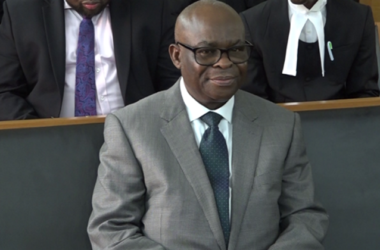Equatorial Guinea’s Vice President, Teddy Nguema, has declared a new policy to install surveillance cameras across all government offices, aiming to uphold ethical standards and deter misconduct within the public sector.
This bold move, announced in an X post, emphasizes the government’s dedication to transparency, accountability, and reinforcing trust in public institutions.
The policy was introduced in the wake of a scandal involving Baltasar Engonga, Director General of the National Financial Investigation Agency (ANIF).
Engonga was reportedly discovered to have recorded over 400 intimate videos involving married women, many of whom are linked to prominent figures in the country. His actions came to light during a fraud investigation, which led to an unannounced search of his home and office.
Authorities discovered numerous CDs documenting his encounters, bringing a wave of shock and dismay among officials and the public.
Vice President Nguema explained that the camera installations aim to enforce compliance with laws governing public officials and to “eradicate improper and illicit behavior.”
The new policy also underscores the government’s zero-tolerance stance on actions that undermine the dignity and integrity of state administration.
While this surveillance initiative is meant to strengthen public confidence, responses have varied. Some officials and human rights advocates argue that increased monitoring may infringe upon privacy rights, sparking a broader debate. Others support the measure, seeing it as essential for rooting out corruption and maintaining ethical standards.
The timeline for the policy’s full rollout remains undetermined, and the exact locations for camera installations are yet to be specified.
However, government representatives assure that the initiative complies with existing legal frameworks and reflects a robust effort to safeguard public resources and reinforce governance.
In a related development, the Vice President also announced that any official engaging in inappropriate activities within ministry offices will face immediate suspension. He stated that such actions directly violate the Code of Conduct and Public Ethics Law, emphasizing that “Ethics and respect are fundamental in our administration.”










